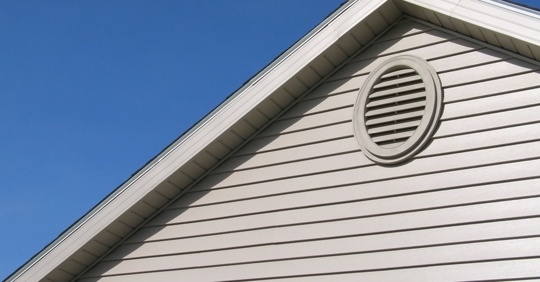Everyone needs a little breathing room, even your home! Proper home ventilation is all about balance. To maintain consistent, comfortable temperatures, humidity, and pollution levels, there needs to be a balance of air intake and output. Without this balance, your home can become congested with moisture, pollutants, and unclean air. All of which can be extremely unhealthy to you and damaging to your HVAC system.
Learn more about the importance of proper ventilation in the home, and how to resolve ventilation issues.
What is the Purpose of Ventilation?
The main purpose of ventilation is healthy indoor air quality. Several things inside our home cause air pollution including HVAC systems, appliances, dust, pet dander, household cleaners, bacteria, furniture, pollen, paint, and the list goes on! Without proper home ventilation, not only do these pollutants remain trapped, but the heated air inside our homes can also build up and create unhealthy moisture levels. Keeping your home well-ventilated is what allows your indoor air to be fresh and clean, as well as helps your HVAC system work safely and efficiently.
Related Content: Manage Indoor Air Quality
What Are the Effects of Poor Ventilation in the Home?
Poor home ventilation can do more harm than simply reducing the efficiency of your HVAC system; it can also cause:
- Health issues. As pollutants become trapped in your home from poor ventilation, it’s likely your health will be affected. Respiratory issues such as a sore throat, runny nose, coughing, or shortness of breath can all be signs of poor indoor air. Other health concerns that may arise include skin irritation, poor sleep quality, headaches, fatigue, and – in extreme cases – heart disease or cancer.
- High humidity. Excess humidity in the home can be a cause for concern for a number of reasons including physical discomfort, damaged paint, rotting wood, and potential mold or mildew growth. That’s why it’s recommended that your home remains between a 30-50% humidity level. This happy medium keeps the air in your home from becoming too dry or too moist.
- Odors. Many things inside our homes create odors, and without proper ventilation, these smells can quickly become more noticeable. Accumulated moisture in bathrooms, cooking smells, cleaning products, chemicals in crafting products, pets, and more, can contribute to these odors.
- Overworked HVAC system. Your HVAC system does more than just heat and cool your space—it provides moisture control and clean air. Without proper ventilation, your HVAC system will quickly become overworked trying to continuously control excess moisture and filter out pollutants.
- High energy bills. You can probably guess that an overworked HVAC system also means higher energy bills. Your system will have to work harder and for longer periods to keep up with temperature, moisture, and air quality control.
- Heating and cooling inconsistencies. Ventilation also helps your HVAC system to evenly distribute hot and cool air throughout your home. Inconsistencies are more likely to occur without proper airflow.
Can Poor Ventilation Cause Mold?
Yes. Moisture is the primary source of mold growth, and this combined with food sources such as wood materials, food, or textiles, can allow mold to grow and spread. This is why you often find mold on the walls of poorly ventilated bathrooms. The moisture and humidity created in a poorly ventilated home create an ideal environment for mold growth.
What Causes Poor Ventilation?
Aside from the obvious answer of a lack of proper ventilation systems installed throughout your home, there are many additional reasons your home could have poor ventilation, including:
- Closed attic or roof vents
- Blocked vents
- Dirty ducts
Signs of Poor Ventilation in a House
Unsure whether your home has proper ventilation? Watch out for some of these signs of poor home ventilation:
- Condensation buildup on windows and glass
- Heat and humidity buildup
- Skin or throat irritation
- Rust buildup on plumbing
- Visible signs of mold growth
- Odors that don’t go away
How to Fix Poor Ventilation in a House
The Quick and Easy Solutions
If your ventilation issues are minor or isolated to one area of your home, these quick solutions will help relieve some congestion:
- Open the windows
- Always use a bathroom fan
- Turn on your ceiling fan
- Keep doors closed to unused spaces
The Better Long-Term Solutions
More severe ventilation concerns should be met with better ventilation solutions:
- Install exhaust fans in the kitchen and bathrooms
- Install an attic or whole house fan
- Install a quality ventilation system
Get Healthier Indoor Air with Proper Home Ventilation
Notice any of these signs or symptoms of poor home ventilation? Keep your indoor air healthy and safe with better ventilation solutions. Our experts at Fox Service Companyprovide ventilation system installation and air quality testing services in Austin, TX, and the surrounding area. Call (512) 488-1120, or submit a form online to get started.

